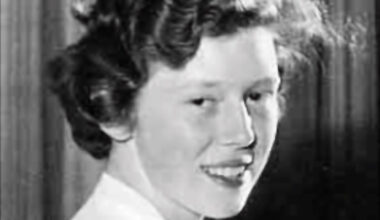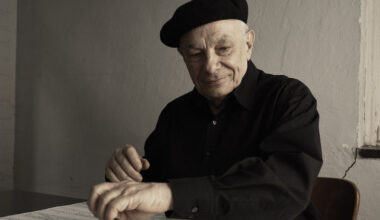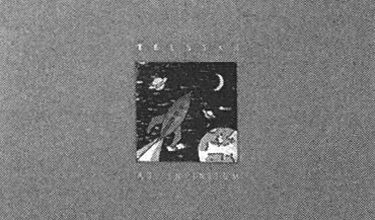Previously known as East India Youth, William Doyle’s new album finds him exploring the joy and pain of his suburban upbringing… with a little help from Brian Eno along the way
“I feel like we convince ourselves out of epiphany or profound experience because we think it’s to be had elsewhere, that you have to go on a voyage to find it,” says William Doyle, discussing one of the themes of his new album ‘Your Wilderness Revisited’. “But I think that if you close yourself off to the landscape and the things that it holds for you to discover, then you’re missing out.”
Doyle is best known for his synth-laden, emotive electropop as East India Youth, and has seen records released on respected indie imprints such as XL and Stolen Recordings. His new album, for The Orchard, is different in a number of ways, and is the first made under his own name.
Through his lyrics and the appearance of several star guests, ‘Your Wilderness Revisited’ explores Doyle’s teenage years in suburban Hampshire. Rather than portraying it as drab and uninteresting, as city outskirts are so often painted, he shows it to be a place of great beauty if only we could learn to appreciate the way that nature and civic design co-exist.
“It’s a grey area,” he says. “I think it’s harder to define. Our house had front windows looking out on to lots of houses and roads, and the back bedroom windows looking out on a woodland area that seemed to go on forever. You’re constantly in this tug of war between environments there, and I think that can have quite an impact on you without you realising it.”
Doyle moved to the world he describes on the record when he was 13 following the death of his father, and while initially he hated the ordered, endlessly similar streets, as he grew older he found these edgelands between the town and countryside fascinating.
“It was not only a strange time, but to then transplant yourself to a different environment with a different rule set, I really didn’t enjoy it at the start,” says Doyle. “It wasn’t until after a year or two of being there that I thought, ‘Hang on, I’m getting some affection for this environment.”
Doyle describes this landscape as having an inherent “psychedelic possibility”, and that’s reflected in the dreamlike atmosphere of ‘Your Wilderness Revisited’. Unlike his previous work, it uses acoustic instruments such as piano, saxophone and guitar, yet Doyle douses these in layers of effects, looping them, cloaking them in hypnogogic delays and making them echo in cavernous reverbs.
‘An Orchestral Depth’ drifts in an ambient space, like an out-of-body experience floating over grids of houses, the singer’s voice wracked with a deep emotion reminiscent of one of his heroes, Björk. ‘Zionshill’, named after a small coppice that Doyle sought refuge in soon after he moved to the area, begins as an acoustic guitar paean, but dissolves into a lysergic shimmer of cathedral-sized sound.
When he was making the record, specific sounds and the way they could evoke a sense of place were more important to Doyle than songwriting in a traditional sense.
“Every song started with a sound, like the ‘Millersdale’ piano, I’d made that sound before I’d made the song,” he says. “That was the way everything was constructed rather than through structure, melody or chords. I added all those things afterwards. There was a need to create an atmosphere first and foremost, to paint this picture of a landscape. The sounds do that better than the musical aspects do.”
The album also found Doyle in experimental mode, bringing others into the composition of his music in a way he had never tried before. One such presence on the record is sound sculptor and saxophonist Laura Misch, whose appearance on ‘Nobody Else Will Tell You’ adds an unexpected dimension to its meandering bass and guitar riffs.
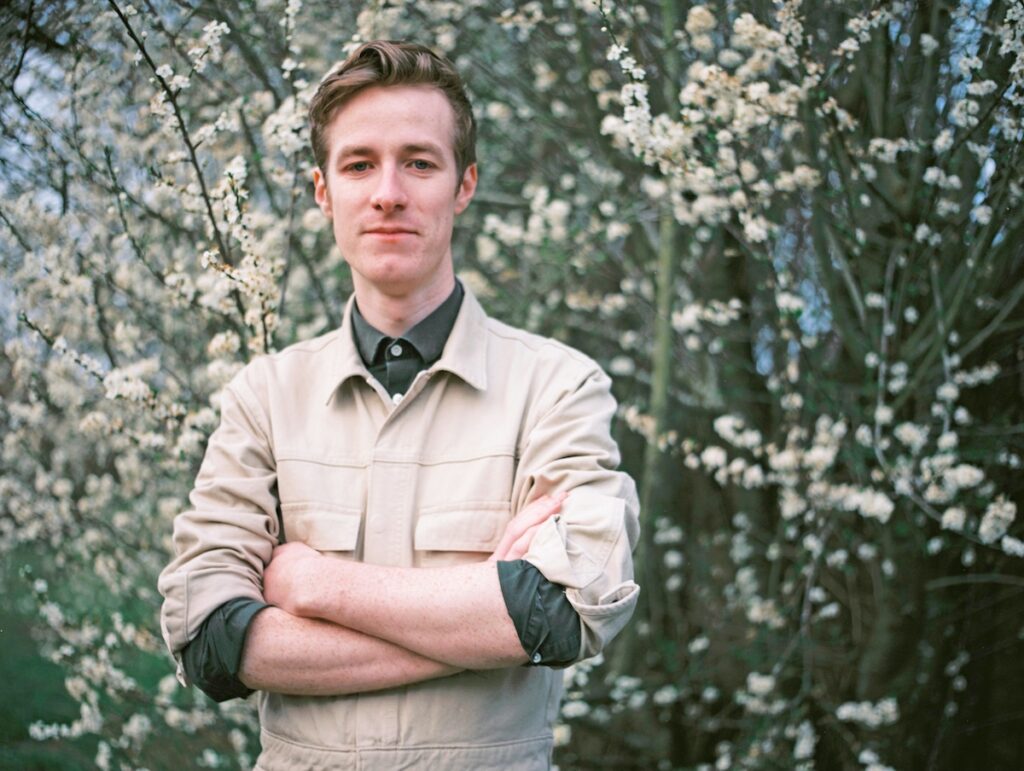
“I felt there were some finishing touches needed there, and a lot of that was down to the saxophone, a sampled instrument I’d used over the recordings,” says Doyle. “I was sort of happy with that sound, but then I thought, ‘I can breathe some more life into this now’. I’d just met Laura around that time, and she’s an incredibly clever artist who thinks a great deal about texture and sound. She’s a producer as well as a great sax player and songwriter, but she’s able to craft these brilliant soundscapes, that’s what drew me to her work in the first place.”
Saxophone features several times on the record, with Alex Painter appearing on ‘Full Catastrophe Living’, while another more famous guest crops up on the song ‘Design Guide’. Delivering the spoken word monologue that forms the introduction to the track, a kind of shopping list for what the ideal suburban environment requires, is Brian Eno. Doyle contacted him on the off chance he might be able to do something, and was thrilled when Eno immediately committed to the project.
“It was a total brainwave,” says Doyle. “I emailed him and got an auto response that said he was away and wouldn’t be back for three or four weeks. I thought, ‘Never mind, it was worth a shot’. And then I got an email back about 20 minutes later saying, ‘I haven’t left yet, I’m going tomorrow, if you send me the thing now I might be able to do it, otherwise I’ll do it when I come back in three weeks’. He did it in, like, an hour. It was a very easy process in the end, and he seemed to enjoy the track as well. I think he likes being asked to do unusual things like that, people often want him to produce their record, but when he’s asked to do something a bit out of the ordinary, he’s seems up for that, it’s that relentless curiosity that he has.”
As someone who has consistently explored how sound can interact with, or evoke environments, Eno was a natural choice to appear on the album.
“I thought that he would get where the record was coming from, that he would be interested in the subject matter,” says Doyle. “To be honest, I probably wouldn’t have thought about those things without having listened to his records when I was growing up. Not just ‘Music For Airports’, but ‘On Land’: that record is so atmospheric, it’s barely music at all, music is the wrong word for it almost. You’re creating this environment just through the sounds you’ve made, and perhaps colouring the actual environment you’re in while you’re listening to it.”
‘Your Wilderness Revisited’ was not an easy record for Doyle to write, but it was a necessary one. Its themes, which had crystallised in his mind over years, were deeply embedded and associated with a period of grief and huge upheaval. In his decision to tackle the subject of suburbia and his place within it, he decided to pare back his music, make it more direct and honest. The shift to “real” instruments was a big part of this.
“I was using a lot more traditional instruments,” he says. “There’s not many synthesisers on the record, but there’s a lot of audio processing and sounds that have been worked on in software. East India Youth was littered with synths and that’s what created the space that those songs lived in. This project was a move away from that artifice, to do something a little bit more organic, or at least working from organic material.”
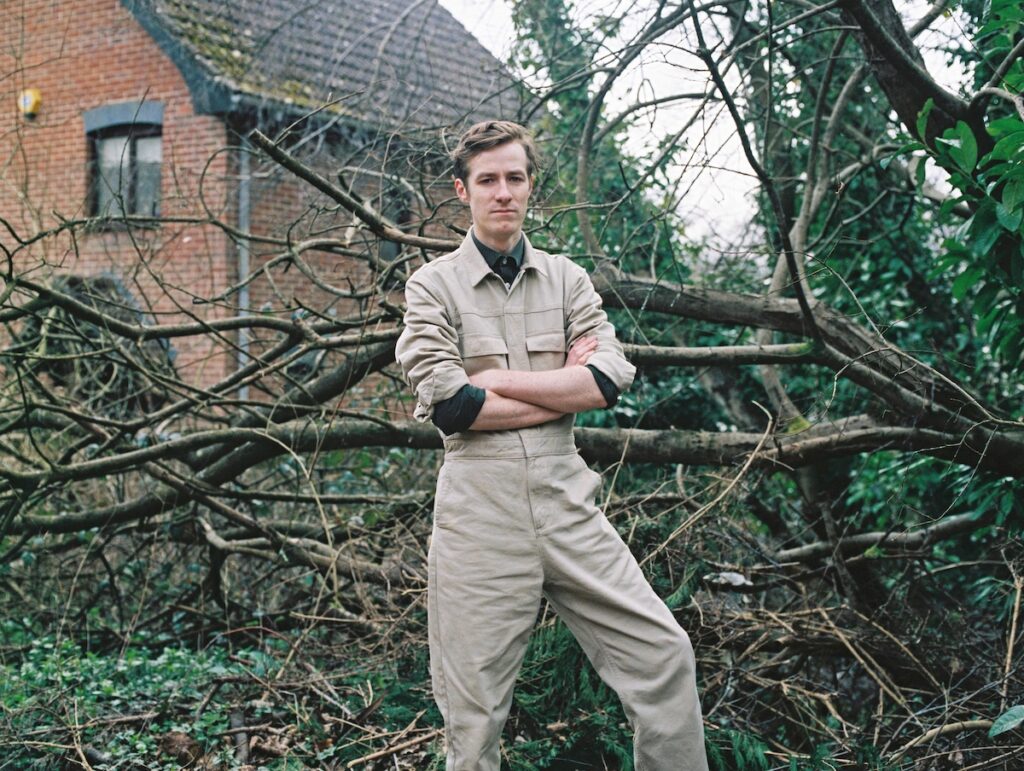
By confronting his past on the record, both its beauty and pain, Doyle thought that using his own name made more sense. This time round, he could be more authentically himself.
“I didn’t feel I was necessarily following in the footsteps of what came before,” he says. “But it felt creatively freeing, it felt a little bit more genuine for me to put it out under my own name. There would be less mystique, less to hide behind this time I suppose.”
Doyle has said that he’s suffered from depression, and part of the process of making ‘Your Wilderness Revisited’ was cathartic. Four years in the making, at the beginning of the process its themes seemed overwhelming. But by bringing in other musicians, he was able to conquer feelings of isolation and be at ease with the confessional nature of his lyrics.
“You don’t want to keep living in your own head,” he says. “It was hard to make the record totally by myself, I couldn’t have done it without the other people involved… although I tried to do that for a long time! By letting other people in and opening it out, it didn’t feel as fraught and painful as it did when I started.”
One of the best songs on the album, ‘Full Catastrophe Living’, directly confronts his depression, though its unusual title stems from an unexpected source. The song takes its name from a Jon Kabat-Zinn book on mindfulness meditation, a practice that, Doyle says, has helped him cope.
“If I wasn’t able, by doing meditation, to manage my emotions and my mental health, I don’t think I would have been able to make this record. I wouldn’t have been physically able to do it because it took a lot of time and a lot of effort, but also some of the themes on there are buried deep within me so I wouldn’t have been able to tap into those places without looking after myself in that way.”
Meditating, says Doyle, has also made him a better songwriter, increasing his capacity to realise lyrics and structures.
“I’ve noticed the clarity it gives me when I’m deep into the practice of it,” he says. “If I’ve been doing it once or twice a day for six weeks or so, I notice that if I want to hone in, concentrate or write something, I can do it a lot easier than when I’m not meditating regularly.”
Towards the conclusion of the record, ‘An Orchestral Depth’ contains a spoken word segment from another of William Doyle’s inspirations. Writer and filmmaker Jonathan Meades recounts some of the observations he made in his film ‘Father To The Man’, which pay tribute to the suburban places that are neither one thing nor the other. He mentions the “edgelands, which were dismal, but exciting too. I too regard suburban avenues and river banks, back streets and woods, as the best free show on Earth”.
Get the print magazine bundled with limited edition, exclusive vinyl releases

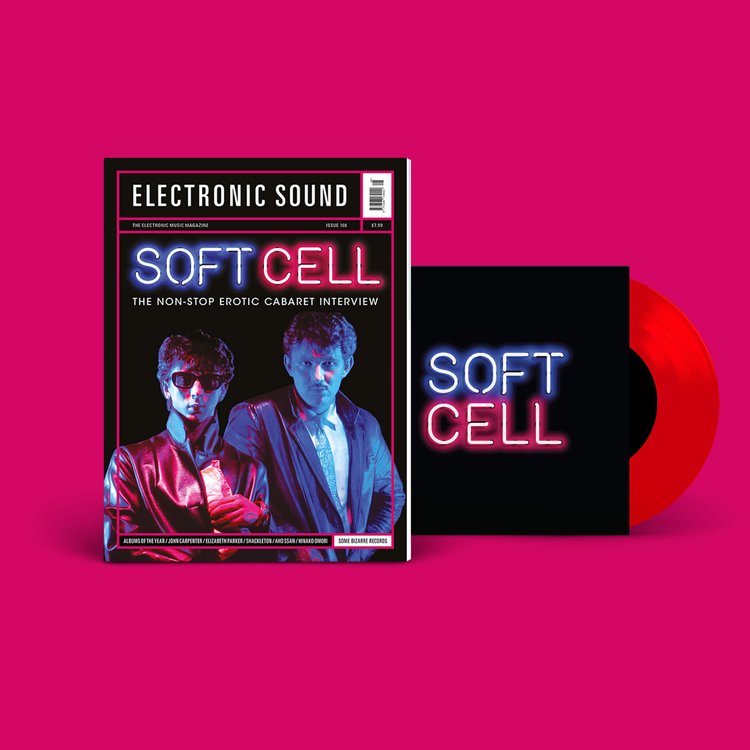

Meades’ words cut to the core of what the record is about, beauty amid the mundane, which we ignore in the endless pursuit of some unattainable ideal, and Doyle was thrilled to get him on the record.
“A few years ago, I got a collection of his writing called ‘Museum Without Walls’,” says Doyle. “The phrase I ended up putting on the record, that he kindly recorded for me, was about ‘the greatest free show on Earth’, it’s about the world around us, our own environment. I didn’t realise that was what my record was about until very late in the day.
“‘Father To The Man’, his film about suburban environment, resonated with me in many ways. I’ve learned so much from his work, I think the idea that anything is beautiful if you look at it long enough or in a certain way. Jonathan Meades seems to be a very underrated character in Britain, more people should know about him, so I suppose this is my opportunity to be able to shout about him a little bit.”
‘An Orchestral Depth’ segues neatly into ‘Thousands Of Hours Of Birds’, a song about walking home “after a big night”, and hearing the sublime sounds of the dawn chorus set against the supposed uniformity of the suburban surroundings.
Doyle believes that our need to separate the wilderness from humanity is irrational, that if we could overcome that, we could live more harmoniously in these places designed for their civic congeniality.
“Listening to the dawn chorus was one of the most amazing things that has ever happened to me,” he says. “That does link back to the idea that, ‘Well, that happened in this ‘boring suburban place’, and it was an incredibly magical experience. I think the problem is we see nature in this very binary way, like it’s over there and where we are is a built-up environment, like they’re opposing ideas. That’s bollocks, there is no binary there, nature is everywhere and everything, and if we treated our environment with that in mind, we would have a much more harmonious feeling.”
‘Your Wilderness Revisited’ is out on The Orchard

